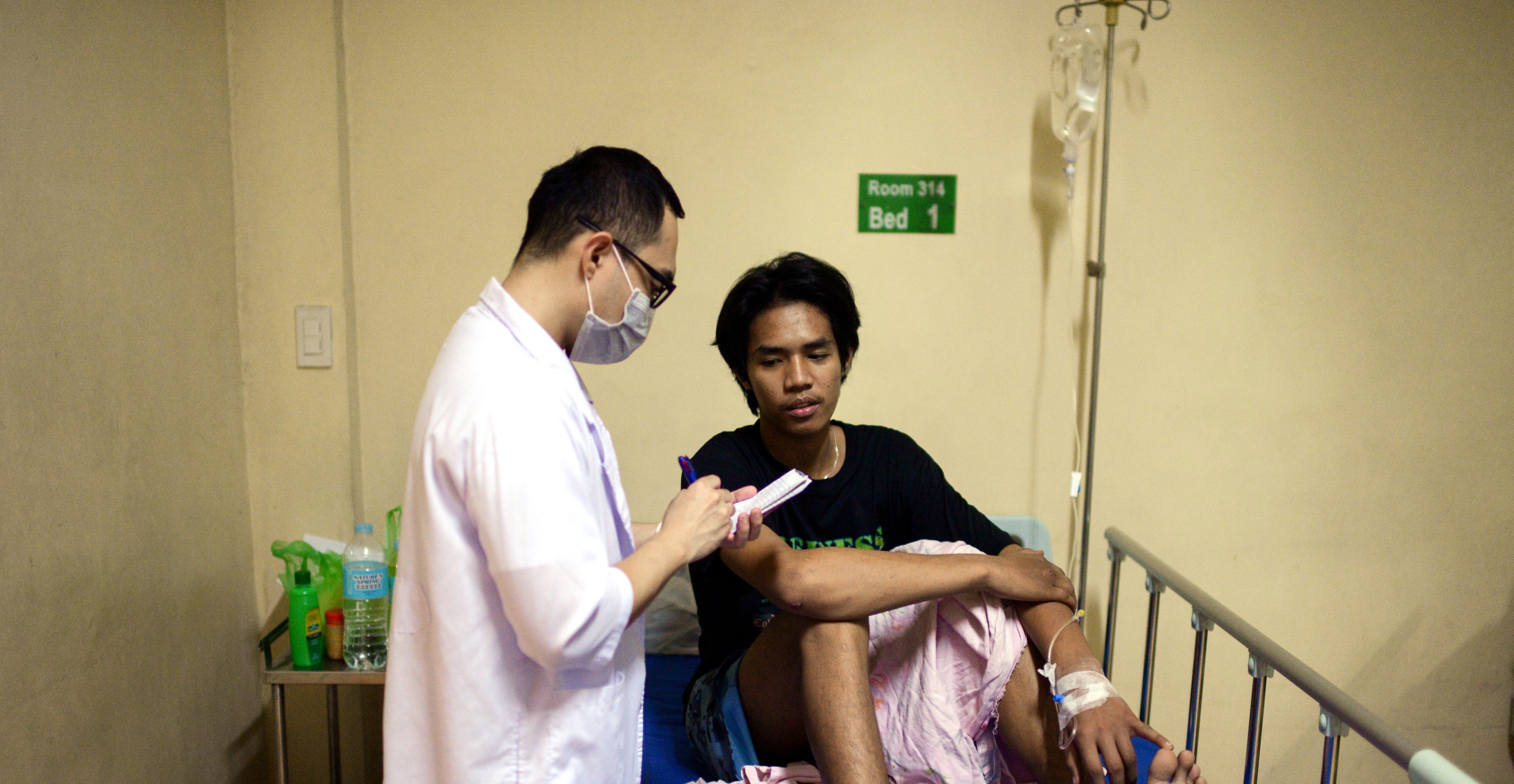COVID isn’t going anywhere, neither should our efforts to increase responsible access to data

Data resources for understanding COVID-19 have become more limited. Image: Unsplash/National Cancer Institute
Listen to the article
- The COVID-19 pandemic continues to have ramifications across the world, with significant health, economic and social effects for many people.
- Yet interest in COVID-19 is diminishing and many data-driven initiatives to help policymakers understand the crisis have been retired.
- Non-traditional data, data collaborations and lessons learned across sectors can provide a way to understand the crisis in a time of diminishing resources.
Three years and an estimated 16 million deaths later, public interest in the COVID-19 has shifted to what is being referred to as "COVID fatigue".
People are feeling overwhelmed and exhausted from the constant barrage of news and changes brought on by the pandemic, leading to a decrease in engagement and concern.
However, it is important to remember that the pandemic is far from over. China has recently experienced what might be its largest wave and countries around the world continue to face long-term social, economic and health effects.
As decision-makers and the public-at-large shift their focus to other priorities, resources for understanding and combating COVID-19 have become more limited.
Fewer governments provide access to case or mortality data, while once-lauded data programmes and data collaborations that might inform policy have been discontinued.
That’s bad news. There is a constant and urgent need for data to monitor the spread of the virus and its many consequences so we can develop informed and well-targeted policies that are capable of addressing those challenges. New data sources are especially vital in demystifying aspects of the pandemic that have gone under-examined or unnoticed.
Data vital to understanding COVID-19 pandemic
The good news, as we argued in our report, the #Data4COVID19 Review: Assessing the Use of Non-Traditional Data During a Pandemic Crisis, is that much of the data needed to understand and respond to the pandemic already exists – albeit siloed away or attached to programmes that are scaling back amid reduced funding.
Moving forward, institutions will need to consider how to embed non-traditional data capacity into their decision-making to better understand the world around them and respond to it.
For example, wastewater surveillance programmes that emerged during the pandemic continue to provide valuable insights about outbreaks before they are reported by clinical testing and have the potential to be used for other emerging diseases.
We need these and other programmes now more than ever. Governments and their partners need to maintain and, in many cases, strengthen the collaborations they established through the pandemic.
To address future crises, we need to institutionalize new data capacities – particularly those involving non-traditional datasets that may capture digital information that traditional health surveys and statistical methods often miss.

In our report, we suggest four pathways to advance the responsible access to non-traditional data during future health crises:
1. Increasing evidence and awareness about the value proposition of non-traditional data
A stronger evidence base that can generate awareness of current non-traditional data practices and support the value proposition of non-traditional data during crisis situations. Having more data about how to use data can help initiatives grow beyond current pilot programmes and proofs of concept during future crises.
2. Advancing trust, ethics, and equity within non-traditional data initiatives
Prioritizing trust, ethics, and equity at the start of and throughout non-traditional data initiatives can increase their legitimacy and more meaningfully address the problem at hand.
3. Strengthening collaboration and institutionalization of non-traditional data uses
Multi-stakeholder partnerships can increase the data capacity and accelerate non-traditional data initiatives in a systematic and scalable way. Institutionalizing internal professional functions and external partnerships can strengthen the responsible and efficient use of non-traditional data during crises.
4. Preventing fragmentation, and improving readiness and coordination
There is a need for a more coordinated approach – across all crisis management efforts and functions – to address needs both as health systems evolve and as institutions face future public health emergencies. Minimizing fragmentation has the potential to increase readiness for future dynamic crises.
As the World Health Organization (WHO) continues to develop the draft of a new pandemic accord to strengthen preparation for and responses to health emergencies, these needs should be kept at the forefront. We encourage members of the WHO's Intergovernmental Negotiating Body to build in mechanisms to reinforce international data capacity.
What is the World Economic Forum doing to improve healthcare systems?
To be sure, much of the responsibility for developing the data capacity rests with national and local governments. Still, elevating these issues to a global level might provide the impetus for leaders to keep data on the agenda and to continue working with civil society, data rights advocates, and the private sector to respond to data needs in a responsible and effective manner.
Regardless of the approach taken, we cannot allow pandemic fatigue to interrupt vital, ongoing research. So long as the pandemic remains with us, our leaders have an obligation to use all the tools at their disposal to respond to its effects.
Advancing the responsible access to data is critical as we face the next phase of the pandemic and prepare for potential outbreaks in the future.
Don't miss any update on this topic
Create a free account and access your personalized content collection with our latest publications and analyses.
License and Republishing
World Economic Forum articles may be republished in accordance with the Creative Commons Attribution-NonCommercial-NoDerivatives 4.0 International Public License, and in accordance with our Terms of Use.
The views expressed in this article are those of the author alone and not the World Economic Forum.
Stay up to date:
Tech and Innovation
Forum Stories newsletter
Bringing you weekly curated insights and analysis on the global issues that matter.
More on Health and Healthcare SystemsSee all
Judith Love
November 18, 2025






